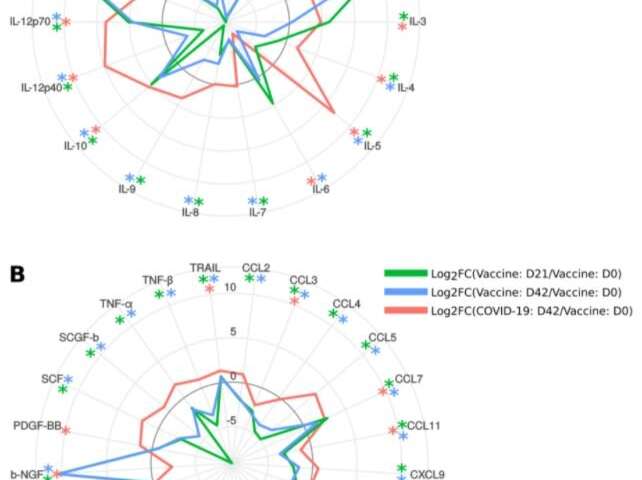Long-term immune response to Sputnik-V COVID vaccine

A joint Russian-British-Indian research appeared in International Journal of Molecular Sciences.
The contributors are Kazan Federal University, Kazan State Medical Academy, Thapar Institute of Engineering and Technology, and the University of Liverpool.
Sputnik-V, a COVID vaccine from Gamaleya Institute, Russia, was the first nationally registered vaccine in the world and is currently in use in over 50 countries. It has shown good efficacy with a relatively low number of serious side effects.
The research aimed at finding out the specifics of immune reactions to Sputnik-V in inoculated populations in Kazan (the city where Kazan Federal University is situated).
The studies showed that even the first dose can initiate an immune response, and the second dose provokes a more robust response which can be detected three months after the administration. The reaction involves both antibodies and T-cell immunity. Furthermore, the team proved that the immune response in the inoculated and those who recovered from COVID is basically the same—which means that the vaccine is effective against the local virus variants. The takeaway is supported by data from the localization of immunogenic epitopes and the analysis of virus mutations.
Co-author, KFU Professor Albert Rizvanov comments, "Sputnik-V elicits both antibody and T-cell immunity. In this paper, we specifically studied a three-month timeframe after vaccination. At this point in time, the response was strong, which can prove the existence of long-term immunity."
The study was approved by Kazan University's Local Ethics Committee.
More information:
Long Term Immune Response Produced by the SputnikV Vaccine
www.mdpi.com/1422-0067/22/20/11211/htm
Provided by Kazan Federal University